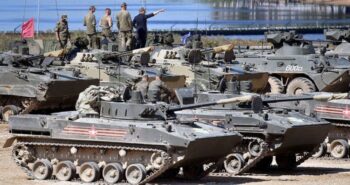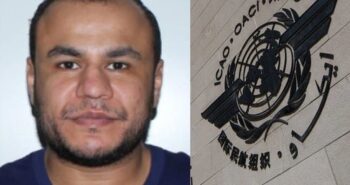Hafed Al-Ghwell

As the world busies itself with ever-newer crises and conflagrations, the UN continues to stumble through its bargain-making efforts in Libya, having foregone any serious attempt at actually striving for peace in the country.
The organization — through its Support Mission in Libya — has been too reliant on problematic bargains with the ruling elite, ambitious deadlines, and myopic assessments of the realities on the ground, resulting in a series of missteps that have increasingly undermined the prospects of stabilizing the nation. Its approach has been characterized by an alarming degree of naivete, much like expecting a pack of wolves to shepherd a flock of sheep.
Each iteration of often highly touted peace-building strategies has largely hinged on negotiations with the very elite who have been instrumental in perpetuating Libya’s malaise. These so-called “elite bargains” often serve as little more than thinly veiled attempts to protect highly vested interests that are far removed from the concerns and aspirations of the ordinary Libyan citizen.
A stark example of this misguided approach is the UN’s attempt to broker a political settlement between the nation’s two rival governments through an arrangement that is akin to the Iraqi “muhasasa” model, in which unaccountable elites divvy up power and subject average citizens to some unwritten social contract.
Naturally, all it has achieved is the entrenchment of corruption, the perpetuation of structural violence, and the acceleration of the consolidation of power among Libya’s illegitimate rulers, further marginalizing the majority.
Moreover, the UN’s current strategy remains shackled by the pursuit of overly ambitious deadlines, as a consequence of external pressures rather than a careful analysis of prevailing realities. The rushed push for elections in 2021, which were ultimately postponed due to deep-rooted disagreements over the electoral framework, was a stark illustration of this flawed approach.
Yet, the UN risks repeating the same mistake, following its envoy Abdoulaye Bathily’s emphatic declaration that elections “can and should occur” this year, despite the serious structural, legal, governance, legitimacy and inclusivity issues that remain unresolved, as well as ongoing disputes within and among rival factions.
This year, the UN Security Council adopted an initiative, proposed by Bathily, to establish a Libyan High-Level Panel for Elections, with the aim of facilitating the establishment of a legal framework and road map for holding elections by the end of the year.
However, this panel will serve only as a consultative body, with the UN stating that the authority to draft election laws would remain with the 6+6 Joint Committee, a constitutional body formed by an equal number of representatives of the two rival Libyan factions.
Through the panel, therefore, both of the rival administrations in the east and west of the country will retain the power and means to stall any political resolution they feel threatens their hold on power.
Most stakeholders, both local and international, were cautiously optimistic about the panel offering a potential path out of an enduring stalemate, given that although any elections that eventually take place will have stemmed from a very problematic political settlement behind closed doors, it will be a settlement nonetheless.
But after the man-made flooding disaster in Derna, in which one of the competing factions is culpable for the widespread destruction in the coastal city, the massive loss of life and the forestalling of any accountability for it, it is clear that the idea of any anticipated elections this year is a complete non-starter.
The current security situation in Libya is nothing short of a chaotic nightmare. A country once known for its significant oil reserves is now a playground for local militias with shifting allegiances, making a mockery of the very concept of national security. Their territorial and political objectives often clash, turning cities into war zones, with citizens mere collateral damage. Not to mention the rampant external interference, with problematic meddlers stubbornly refusing to withdraw their forces or the hybrid actors they are aligned with, which casts a long shadow over any potential resolution since it would more than likely undermine their self-interested objectives.
Yet it appears as though the UN will persist with its same old tactics. This is likely to be confirmed in the coming weeks when the Security Council renews the mandate of the support mission in the country, which is due to expire at the end of this month.
Not even the tragedy of Derna has sparked any sort of introspection about why the embattled UN repeatedly trips over the same stumbling blocks, year after year. One would think the stark governance deficits, poor infrastructure and appalling lack of emergency planning that led to the deaths of more than 4,000 Libyans, with 9,000 still missing and many more displaced from their homes, would at least have jolted the Security Council into taking a long, hard look at why its interventions in Libya keep failing.
Instead, a strange consensus seems to be forming around facilitating some type of agreement between the rival administrations in the east and west of Libya, which could entail the establishment of a new interim, caretaker “government of national something,” as long as it leads to elections.
It is a major shift from the UN’s previous assessment that appointing a new “player” would only serve to incentivize the elites to backtrack on their so-called electoral commitments and reinforce the status quo.
Strangely, the US also now concurs with this shift, in the hopes it will lead to what Washington desires to be “free and fair” elections — despite initially opposing any plans to depose Abdul Hamid Dbeibeh’s Tripoli-based, UN-backed Government of National Unity.
However, a call for elections in the current climate underscores the myopic understanding of the convergence of varying crises in Libya, which are further complicated by developments beyond the nation’s borders, since the North African country is one of several battlegrounds for rival geopolitical interests.
Almost as if it is avoiding confronting that dynamic, and accounting for it as part of a sustainable, feasible peace-building strategy, the UN would rather place too much focus on visible expressions of violence while neglecting the deep-rooted structural issues that fuel them.
As already seen in Iraq and Lebanon, an elite-driven, post-conflict consensus often masks a more insidious form of violence: The perpetuation of inter-elite competition, corruption and the erosion of state capacity, all of which cause significant harm to the public interest.
In Libya, the UN’s strategies often favor stability over accountability in these situations. Unfortunately, that only ends up preserving the status quo, for fear of triggering violence or even civil war, resulting in a series of short-term deals that, in reality, simply solidify corrupt and unrepresentative political systems and deny the Libyan people any agency.
These flawed systems, driven by corruption, then just go on to incite the very violence the international community was seeking to avoid, as a result of the inequalities they inevitably create.
Thus, the UN’s approach to Libya needs to be seriously reevaluated. Peace-building efforts must be grounded in a nuanced understanding of the challenges the country faces that goes beyond the visible and acknowledges the structural.
Furthermore, the UN must resist the temptation to look for quick fixes and set unrealistic deadlines. The road to peace in Libya is likely to be long and arduous, full of bizarre twists and turns that are likely to frustrate any envoys or any external actors invested in Libya’s reemergence.
Elections, while aspirational, will not suddenly turn the page in the second decade following the downfall of Muammar Qaddafi. They cannot be rushed and, much like the broader collective vision for the democratization of Libya, they must also be rooted in the aspirations of the Libyan people, rather than the short-term interests of a select few.
Only then can there be any hope of achieving a durable and inclusive peace in Libya, a peace that is more than simply a shimmering mirage in the desert.
***
______________





